Books
Books

R.S.V.P. Portrait Series II
"Considering their practice within the art world addresses the issue of how art is (re)presented or how art can be seen, I asked Yves Gevaert,Tom Engels, Raimundas Malašauskas, Kasper Bosmans, Felipe Dmab, Dirk Snauwaert, Olivier Vandervliet, Bas Hendrikx and HC (Friedemann Heckel & Lukas Müller) in this second series of the portraits. The profile of these men is very diverse. They work as publisher, curator, critic, gallerist, or artist, thus each of them is dealing in a different and sometimes personal way within the system of the art world.
The portrayed are sitting in front of a black velour background, a light absorbing surface. High-quality equipment and professional lighting, bring life to the smallest detail in the razor-sharp photographs. The portrait series expresses the objectification of and the fascination for the other, two aspects that are historically linked with portrait photography."
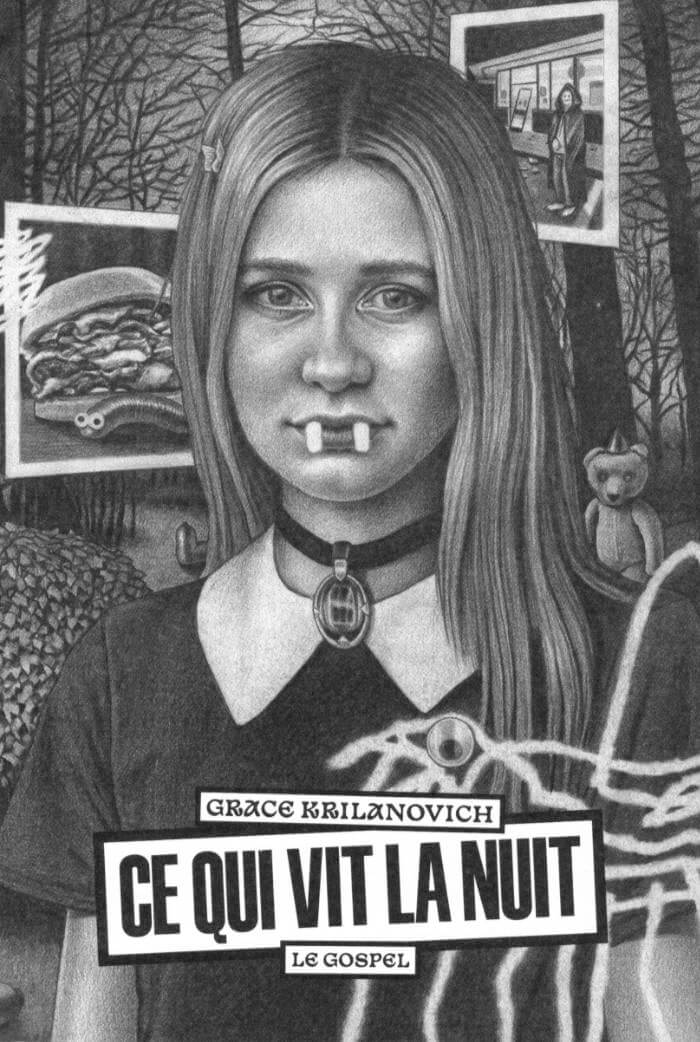
Ce Qui Vit La Nuit
“Je voyais ce qui était écrit sur les murs. Ce n’était plus les années 1990. Ce n’était même plus le Pacifique Nord-Ouest. Quelque chose était arrivé qui avait tout balayé et j’avais été abandonnée enfermée dans un sarcophage puant, rêvant de l’endroit où j’étais née, me sentant très triste parce que cet endroit aussi avait été ramassé et fourré dans la gueule du monde.”
Elle a 17 ans, sort à peine de l’adolescence et pourtant elle est déjà en rupture totale avec le monde qui l’entoure et la violente. Fuyant sa famille d’accueil, elle part à la recherche de Kim, une sœur adoptive adorée qui a pris la route un peu avant elle. En chemin, elle tombe sur une bande d’enfants perdus, junkies violents devenus vampires qui dérivent de concerts en hold-ups, de parkings de supermarchés en gares routières. Sur les routes crasseuses de l’Oregon, cette riot grrrl d’un genre un peu particulier commence à entendre une voix, celle d’une pionnière morte de froid des siècles auparavant, qui se mêlent à celles de toutes les laissées-pour-compte de la société américaine.
Texte culte de la contre-culture aux USA, publié en 2010 et immédiatement salué comme un choc, le premier roman de Grace Krilanovich n’est pas un récit traditionnel. Héritière de William S. Burroughs, Kathy Acker, Stephen King et David Lynch, elle explose les carcans de la narration et offre une œuvre à la lisière de la littérature gothique et du roman d’horreur, invitant à une plongée rare dans le milieu punk hardcore américain des années 1990.

Estonian Academy of Arts / EKA GD MA
All horses are the same colour
Parts make up a body, the ringing of bells directs attention, the toilet brushes from KFC collect cultural residue, a series of gaps create the possibility of an alternate reality, avatars lead lives otherwise impossible, the signs at a market form a typeface, excavations reanimate the ghost and a pile of rocks becomes a portal to understanding. [publisher's note]
Authors: Carlo Canún, Rita Davis, Mark Foss, Michael Fowler, Oliver Long, Alexandra Margetic, Gréta Þorkelsdóttir, Patrick Zavadskis

Girls Like Us #14 - Letters of Disappointment
Marnie Slater, Katja Mater and 2 more
Considered an ‘ugly feeling’ by society’s norm, we’re not supposed to vocalize what and who is letting us down. We’re supposed to stay positive, get organized and act, instead of lingering in negative emotions. We’re supposed to be productive. But making space for disappointment can be a strategy of dissensus. Instead of wallowing in impotence, to make explicit what is not meeting expectations for this world can be an act of renouncing and making cracks in the status quo, while not giving up allegiance that another world is possible.
In Living a Feminist Life, Sara Ahmed writes: ‘we might think of how becoming feminist put us in touch with all that sadness, all those emotions that represent a collective failure to be accommodated to a system as the condition of possibility for living another way.’
In this issue we hope to plant the seeds of this rebellion by collecting a larger body of letters of disappointment. No matter how vague, impersonal, unimportant, futile, banal, or contingent these memories may seem; when shared and brought into a wider collective context, political desire may slip out from between the lines and build a corpus of transfeminist inheritance.
While spending some time with a tarot deck in preparation for this issue we obviously pulled the card of disappointment. In this deck, the illustration shows a beautiful drought: five crystal cups, which in the other cards overflow with fresh water, are shown here empty and dry.
‘The Five of Cups stands for an emotional crisis. It might be that unconscious fears come true, it could tell that feelings are disrupted or wasting away, the soul is empty and unfulfilled. In the sequence of the cups, the Five is the logical consequence of the Four. The grey tristesse that was lurking behind the luxury’s glamour is now exposed, the ‘truth is out’. The Five of Cups implies the loss of illusion, the realization of a deception. It hurts, but is necessary when we don’t want to spend the rest of our lives with our heads in the sand.’
We leave it up to you to imagine the possibilities or boundaries of what spending time with disappointment can make happen, for you, in your community, in the world.
Contributors: Pelumi Adejumo, Clara Balaguer, Dagmar Bosma, Staci Bu Shea, Alba Clevenger, Athena Farrokhzad, Sharona Franklin, Maike Hemmers, Calla Henkel, Sara Kaaman, Alena Kolesnikova, Maoyi (Peixuan Qiu), Katja Mater, Yelena Moskovich, Djuwa Mroivili, Sands Murray-Wassink, Raoni Muzho, Iarlaith Ni Fheorais, Ashley Nkechi Igwe, Milica Trakilović, Shola von Reinhold, Selma Selmani, Terre Thaemlitz, Yin Yin Wong, Anna Zvyagintseva, Sophie Zwertbroek, Joanna Walsh, Rosa Luxemburg, Yoyes Maria Dolores Gonzalez Katarain, Clara Zetkin, Alexandra Kollontai and Audre Lorde

Oei
‘Oei’ is the title of a notebook that Guy Rombouts (b. 1949) filled from front to back with the word ‘oei’, during a week in the month of July in the year 1976.
(‘oei’ [uj] is a Dutch-language interjection uttered to express a spontaneous reaction to an unexpected occurrence. [The closest English equivalent would be ‘ouch’.])
Weaving this word as one long stream of thought through the pages of the book under ever-changing guises creates a primal litany in which mistakes are sung over and over again in all their impossibility.
The facsimile of the notebook ‘oei’ is published in full and full size as Posture Pockets N° 3.
‘Oei’ is also the title of the one-room exhibition at Ghent’s S.M.A.K. (31.03-14.05.2023) in which the artist bridges the early beginnings of his practice and transforms this wondrous word into a total installation.
According to Rombouts, direct communication is not possible through our language and consequently some feelings cannot be expressed. Therefore, from the 1960s onwards, he started looking for systems in which form and content could coincide as much as possible.
At the beginning of the 1980s, the acrophonic (the sound of the initial letter) Rombouts font was put on paper, where words could literally take shape again. In 1986, he and his life companion and artistic partner Monica Droste (1958-1998) renamed the intersectionless Rombouts script AZART, among other things an old French spelling of the word ‘hazard’ and also a reference to the Russian word ‘azart’ that stands for ‘in the fire of the game’.
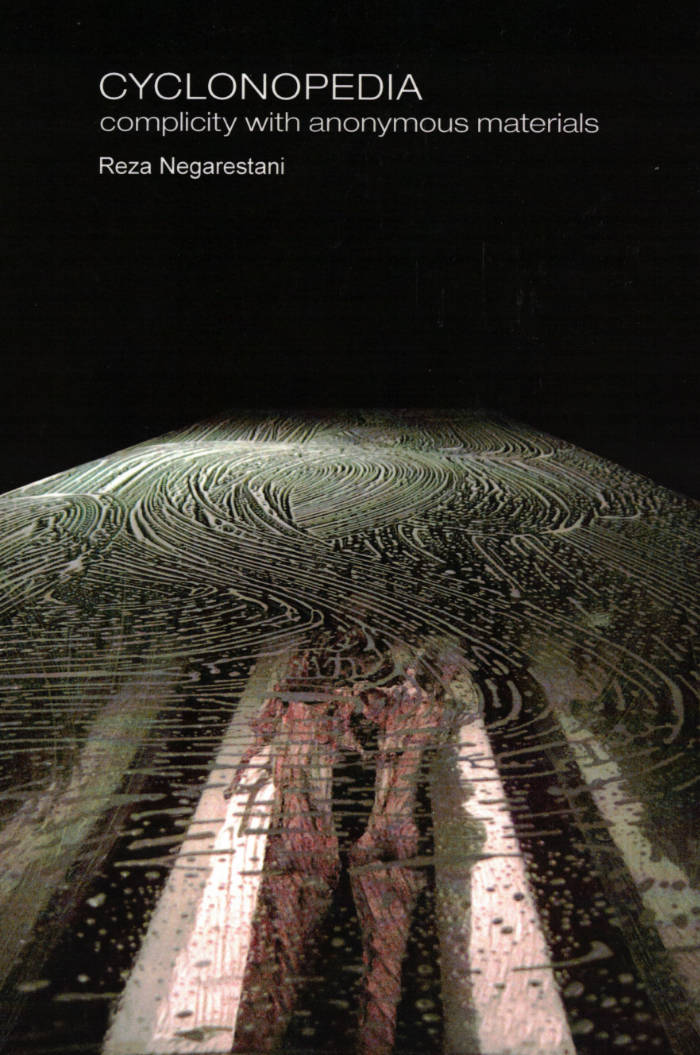
Cyclonopedia: Complicity with Anonymous Materials
At once a horror fiction, a work of speculative theology, an atlas of demonology, a political samizdat and a philosophic grimoire, Cyclonopedia is work of theory-fiction on the Middle East, where horror is restlessly heaped upon horror.
Reza Negarestani bridges the appalling vistas of contemporary world politics and the War on Terror with the archeologies of the Middle East and the natural history of the Earth itself. Cyclonopedia is a middle-eastern Odyssey, populated by archeologists, jihadis, oil smugglers, Delta Force officers, heresiarchs, corpses of ancient gods and other puppets. The journey to the Underworld begins with petroleum basins and the rotting Sun, continuing along the tentacled pipelines of oil, and at last unfolding in the desert, where monotheism meets the Earth's tarry dreams of insurrection against the Sun.
'The Middle East is a sentient entity - it is alive!' concludes renegade Iranian archeologist Dr. Hamid Parsani, before disappearing under mysterious circumstances. The disordered notes he leaves behind testify to an increasingly deranged preoccupation with oil as the 'lubricant' of historical and political narratives. A young American woman arrives in Istanbul to meet a pseudonymous online acquaintance who never arrives. Discovering a strange manuscript in her hotel room, she follows up its cryptic clues only to discover more plot-holes, and begins to wonder whether her friend was a fictional quantity all along. Meanwhile, as the War on Terror escalates, the US is dragged into an asymmetrical engagement with occultures whose principles are ancient, obscure, and saturated in oil. It is as if war itself is feeding upon the warmachines, leveling cities into the desert, seducing the aggressors into the dark heart of oil ...

Revolt, She Said
"May '68 in France expressed a fundamental version of freedom: not freedom to succeed, but freedom to revolt. Political revolutions ultimately betray revolt because they cease to question themselves. Revolt, as I understand it—psychic revolt, analytic revolt, artistic revolt—refers to a permanent state of questioning, of transformations, an endless probing of appearances. In this book, Julia Kristeva extends the definition of revolt beyond politics per se. Kristeva sees revolt as a state of permanent questioning and transformation, of change that characterizes psychic life and, in the best cases, art. For her, revolt is not simply about rejection and destruction—it is a necessary process of renewal and regeneration."

Breast Stories (Revised)
Mahasweta Devi is one of India's foremost literary figures, a prolific and best-selling author in Bengali of short fiction and novels, and a deeply political social activist who has been working in marginalized communities for decades.
Breast Stories is a collection of short fiction that focuses on the breast as more than a symbol of beauty, eroticism, or motherhood. Instead, it is seen as a harsh indictment of an exploitative social system and a weapon of resistance. At a time when violence towards women in India has escalated exponentially, Devi's acerbic writing exposes the inherently vicious systems in Indian society.

Tony Conrad: Writings
Essential writings from the downtown New York legend and polymath, pioneer of both structural film and drone music.
Tony Conrad (1940-2016) was a legendary multidisciplinary artist known for his groundbreaking contributions in experimental film, music, and video. Upon moving to New York City in 1962, he began making music with John Cale, La Monte Young and Marian Zazeela in the Theatre of Eternal Music, a group that helped shape what would come to be known as minimalist music. He later went on to perform with Lou Reed in a pre-Velvet Underground band called The Primitives and cut a classic 1972 record with the German Krautrock band Faust that set a new standard for drone music.
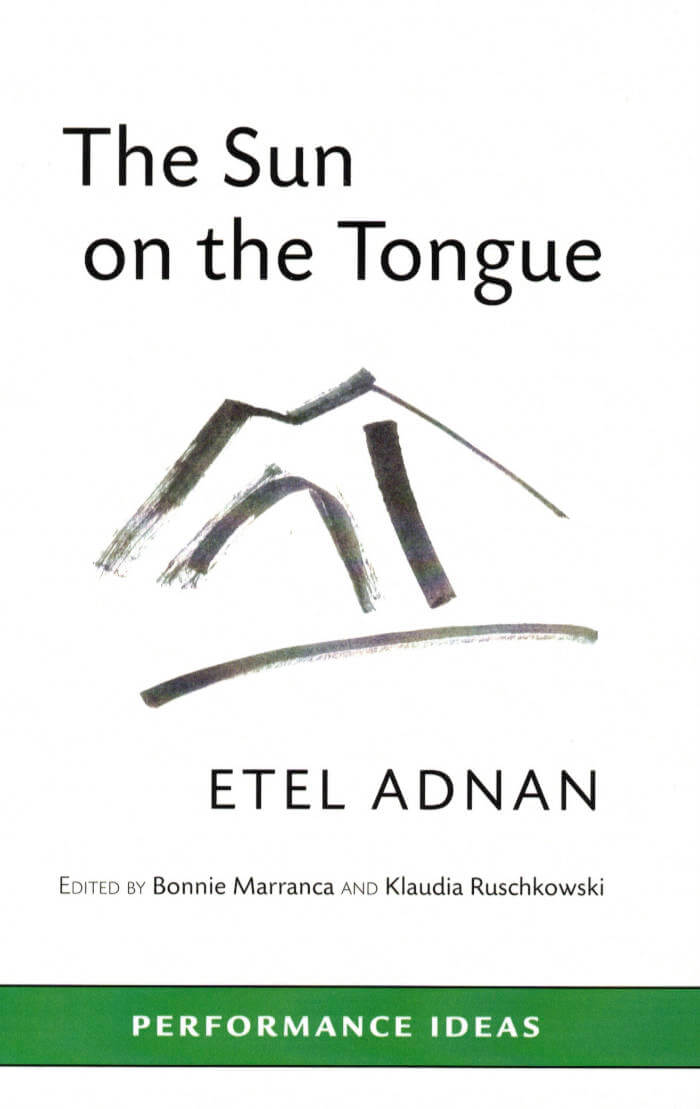
The Sun on the Tongue (Performance Ideas)
The fourth volume in PAJ's Performance Ideas series, The Sun on the Tongue unfolds in an expanding universe of philosophical reflections on love, art, war, nature, and human existence. Etel Adnan, the internationally renowned Arab American writer and visual artist, crosses genres and continents and centuries in her literary texts, plays, poems, and art.
Her plays At A Certain Hour of the Night, Crime of Honor and Tolerance are featured here, along with essays on Pina Bausch and Paul Klee, and an interview on her life and work. Her texts have been performed or adapted for theatre, opera, and radio in the U.S. and Europe. Robert Wilson invited her to write the French section of his multi-country opera, the CIVIL warS: a tree is best measured when it is down, in 1984.
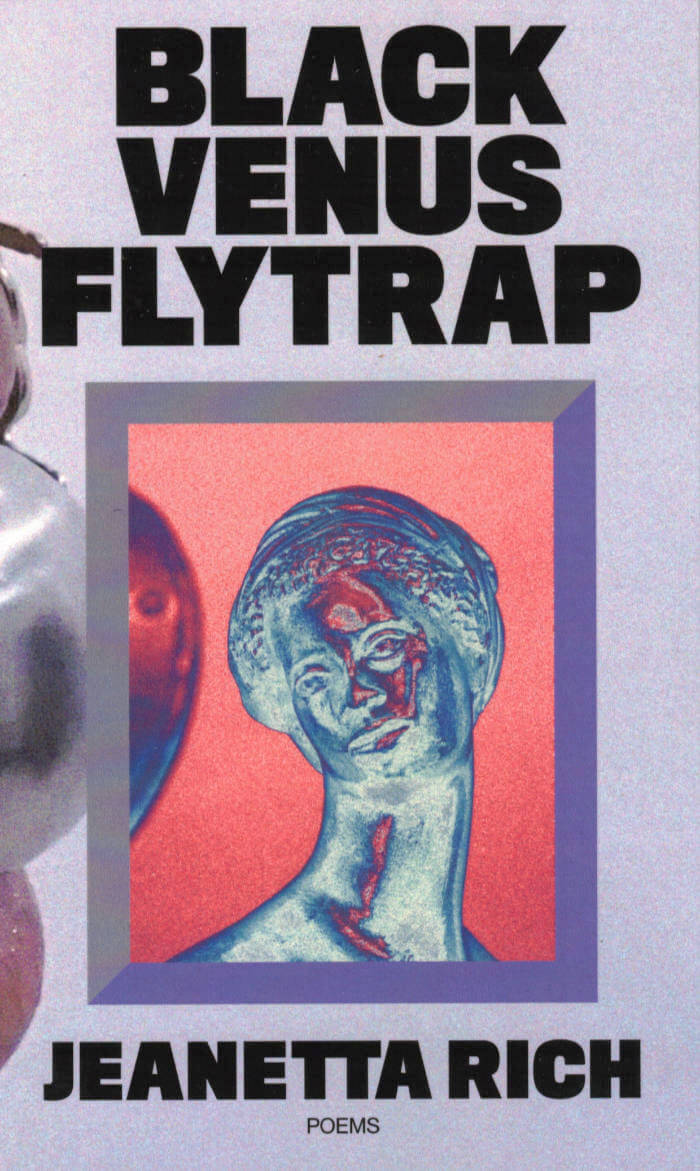
Black Venus Fly Trap
A shocking debut poetry collection that invites readers to grapple with the origins of a world that both hates and needs Black women. A disruptive hagiography of the Black Venus & Sapphire, mammy bulldaggers, and welfare queens, Rich's collection splendidly desecrates poetic elitism. Black Venus Fly Trap is an eldritch account of Black femininity simultaneously born from the chorus of refusal and unlike anything written before.
"That frisson of realness, the unsayable that can be lost when we ask language to convey the infinite interiority of the black woman-Black Venus Fly Trap rescues it." - Doreen St. Felix
"Jeanetta Rich's writing doesn't sit on the page, it oozes over your psyche. Fearless and complex, defiant and radiant! I love it." - Kim Gordon
"Jeanetta Rich once told me that as a child she used to spend hours staring at a painting of the beheading of Saint John the Baptist. Black Venus Flytrap is like that painting: splendid and profane and entirely just. Jeanetta's writing turns each page into a museum of art and we are lucky to admire it. It's exquisite and it stings-which is how you know it's working." - Elaine Kahn
Jeanetta Rich is a mother and poet based in Los Angeles. Her work focuses on the emotional lives of voiceless women, those who have been silenced through poverty and/or lack of education. Her work was recently featured in Texte zur Kunst's 30th Anniversary issue, The Feminist. Black Venus Fly Trap is her debut poetry collection.

Passion
Originally entitled, passion: new poems, 1977-1980, this volume holds key works including "Poem About My Rights," "Poem About Police Violence," "Free Flight," and an essay by the poet, "For the Sake of the People's Poetry: Walt Whitman and the Rest of Us."
June Jordan was a fierce advocate for the safety and humanity of women and Black people, and for the freedom of all people—and Barack Obama made a line from this book famous: "We are the ones we have been waiting for." With love and humor, via lyrics and rants, she calls for nothing less than radical compassion. This edition includes a foreword by Nicole Sealey.

Les Guérillères
Publié cinq ans après L’Opoponax, Les Guérillères, second livre de Monique Wittig, vient à son heure pour souligner et fortifier notre conviction. Le talent de cet écrivain le porte, j’allais écrire, pour notre plaisir et notre profonde satisfaction, à faire du récit le lieu naturel de la contestation du langage, non pas contestation abrupte et maladroite, mais contestation habile par le biais d’une opération beaucoup plus subtile et toujours séduisante. Il semble, en effet, que mots et phrases soient deux fois présents dans le texte : d’abord comme les mots et les phrases de l’usage traditionnel, ensuite comme éléments actifs de l’autodestruction. La métamorphose est très frappante dans ce nouveau livre. Convaincante aussi, tant est sensible le renouveau des images, et leur force.Notons pour commencer, que les Guérillères (ce curieux féminin de « guérilleros ») ne sont ni les cousines, ni les lointaines descendantes des Amazones auxquelles Hérodote prêta le nom scythe d’Oiorpata, ou tueuses d’hommes. La destruction de l’homme n’est pas l’enjeu du combat que les guérillères ont décidé de mener jusqu’à son therme. Ce qu’elles combattent, c’est l’oppression, ou plutôt sa cause, le langage, celui qu’elles ont reçu des hommes, lesquels les ont, par ce moyen, d’abord nommées, puis soumises et réduites à la merci des mots. Ce qu’elles veulent promouvoir, c’est un monde nouveau où elles retrouveront l’expression de l’indépendance originelle. — André Dalmas, La Quinzaine littéraire (novembre 1969)

Le Corps Lesbien
"Pour Le Corps lesbien j’étais face à la nécessité d’écrire un livre entièrement lesbien dans sa thématique, son vocabulaire et sa texture, un livre lesbien du début à la fin, de la première à la quatrième de couverture. Je me trouvais par conséquent devant une double béance : celle de la page blanche que doivent affronter tous les écrivains lorsqu’ils commencent un livre, et une autre de nature différente : il n’existait aucun livre de ce genre. Jamais je n’ai relevé un défi aussi radical. Pouvais-je tenter cela ? En étais-je seulement capable ? Et quel serait alors ce livre ? J’ai gardé le manuscrit six mois dans un tiroir avant de le donner à mon éditeur."—Monique Wittig

L'Opoponax
“The “opoponax” uses neither the language of adults nor that of children; he is neither the novelist nor a narrator. Confronting – in a moving “we” – the “he” and the “I”, he seems to have cancelled them out by the other: this voice which speaks in the present tense of very concrete things, which is gradually strengthening and discovering itself, could it not simply be ours?
My Opoponax is perhaps, indeed it is almost certainly the first modern book ever written about childhood. My Opoponax is the capital execution of ninety per cent of the books that have been written about childhood. It is the end of a certain literature and I thank God for it. It is a book that is both admirable and very important because it is governed by an iron rule, never or almost never broken, that of using only pure descriptive material, and only one tool, pure objective language. The latter takes on its full meaning here. It is the very same language – but brought to the plainsong by the author – that childhood uses to clear out and count its universe. Which is to say that my Opoponax is a masterpiece of writing because it is written in the exact language of the Opoponax.” (Marguerite Duras)
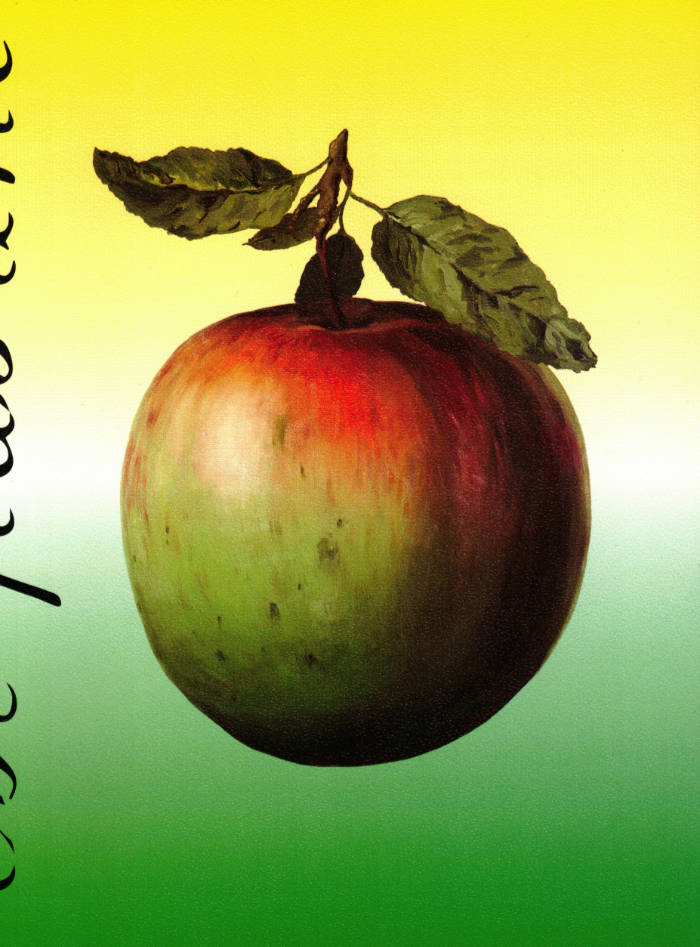
’Est Pas Une
By way of archiving, digital translation and reproduction, Philip Poppek extracts from Magritte’s word paintings twenty-six letters; segmental symbols of a textual system form an alphabet of a, with a familiar apple punctuating a provisional end to the sequence. A poetic correspondence with the letter a speculates on the prehistory of this alphabet, as though searching for some indication as to how we may have come to where we are now, in this ‘post-factual moment’.
Maybe at some point we fell into the foxes’ den, only to re-surface in a landscape of ruins. This book poses a number of necessary questions, perhaps beginning with: ‘Which feminine noun trails after the title script ‘est pas une?
Pomme? Pipe? Histoire? Communauté?

Fiction: The Function
'Fiction' is an ongoing series of works that place themselves between performance props, functional accessories and sculptural objects - an attempt to fuse multiple ready-mades into a cluster that successfully intergrades all three at once.
Fiction: The Function, was the first physical display of these objects, of these handbags, these vessels: meant to carry stories and secrets, as well as depositories of junk from everyday life. They reference the feminist theory of Ursula K. Le Guin, The Carrier Bag of Fiction which opposes the dominant theories claiming the first man-made invention to be the penetrating sword or spear and argues for the alternative that carrier bags are more likely to have been the earliest human tool.
As proper ”carriers of fiction” themselves the sculptures exhibited were accompanied by a publication including scans of found and collected objects combined with original poems.
Designed by Atelier Brenda

Radical Futurisms – Ecologies of Collapse / Chronopolitics / Justice to Come
What comes after end-of-world narratives: visions of just futurity and multispecies flourishing.
There is widespread consensus that we are living at the end—of democracy, of liberalism, of capitalism, of a healthy planet, of the Holocene, of civilization as we know it. In this book, drawing on radical futurisms and visions of justice-to-come emerging from the traditions of the oppressed—Indigenous, African-American, multispecies, anti-capitalist—as materialized in experimental visual cultural, new media, aesthetic practices, and social movements, T. J. Demos poses speculative questions about what comes after end-of-world narratives. He argues that it's as vital to defeat fatalistic nihilism as it is to defeat the false solutions of green capitalism and algorithmic governance.
How might we decolonize the future, and cultivate an emancipated chronopolitics in relation to an undetermined not-yet? If we are to avoid climate emergency's cooptation by technofixes, and the defuturing of multitudes by xenophobic eco-fascism, Demos argues, we must cultivate visions of just futurity and multispecies flourishing.

Some Rockin' – Dan Graham Interviews
A collection of Dan Graham's interviews and conversations with a wide array of individuals from various backgrounds and disciplines.
Dan Graham was a contrarian. His art confronted viewers with a multiplicity of possible perceptions and intersubjective experiences. Some Rockin' was his last project and—through conversations with friends, artists, architects, curators, and former assistants—articulates his sensitivity to context, media, and people. The interviews address rock music and urbanism, humor and astrology, history and the hybrid form. Mediating historical and social experience was a major concern of his. "The Museum in Evolution," an essay he finished just before his death, and published here, highlights that nothing is final in becoming. Rather, it allows for: Some Rockin'.
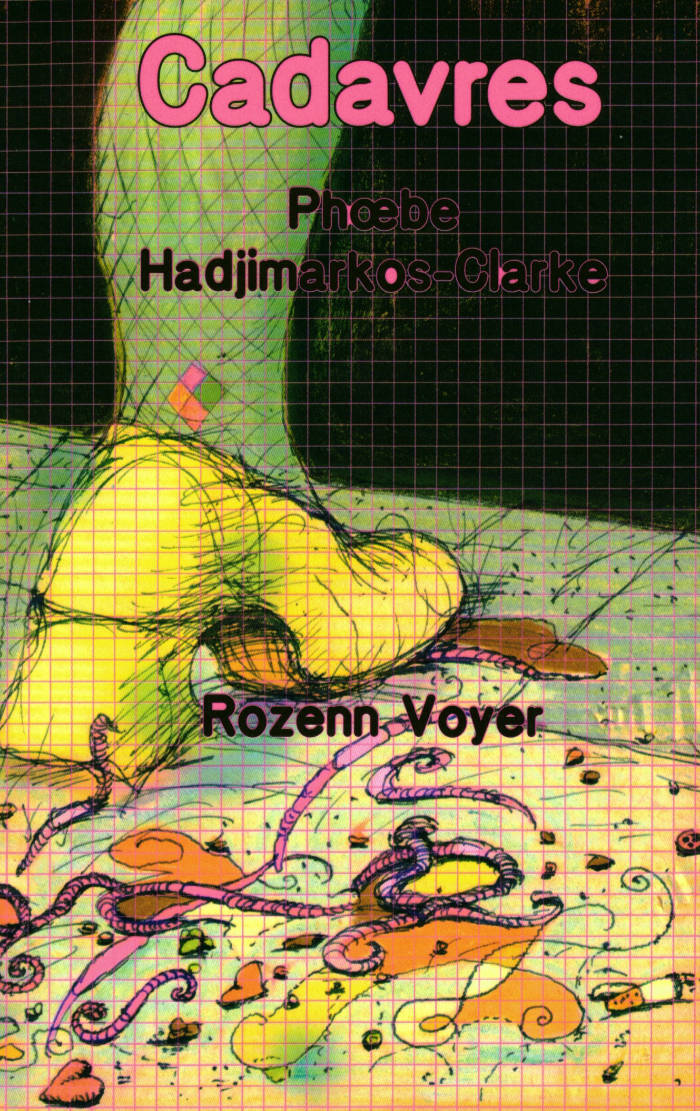
Cadavres
Phœbe Hadjimarkos-Clarke, Rozenn Voyer
Cadavres rassemble 13 poèmes écrits par Phœbe Hadjimarkos - Clarke sur les errances dans les villes âpres, les campagnes humides et les maisons branlantes. Les poèmes sont accompagnés de 15 dessins de Rozenn Voyer.

Monsieur Dubois, dont on fait les flûtes
Imprimé par Élie Partouche à l'Association Presse Offset à Paris et sur internet. Couverture dessinée par Traduttore, tradiore, repiquée sur presse typographique par Grégorie Sourice à Marseille. Le tout relié au bar à bious. Une publication à l'initiative de Louka Butzbach et soutenue par le complexe bancaire Art Majeur, 2022.
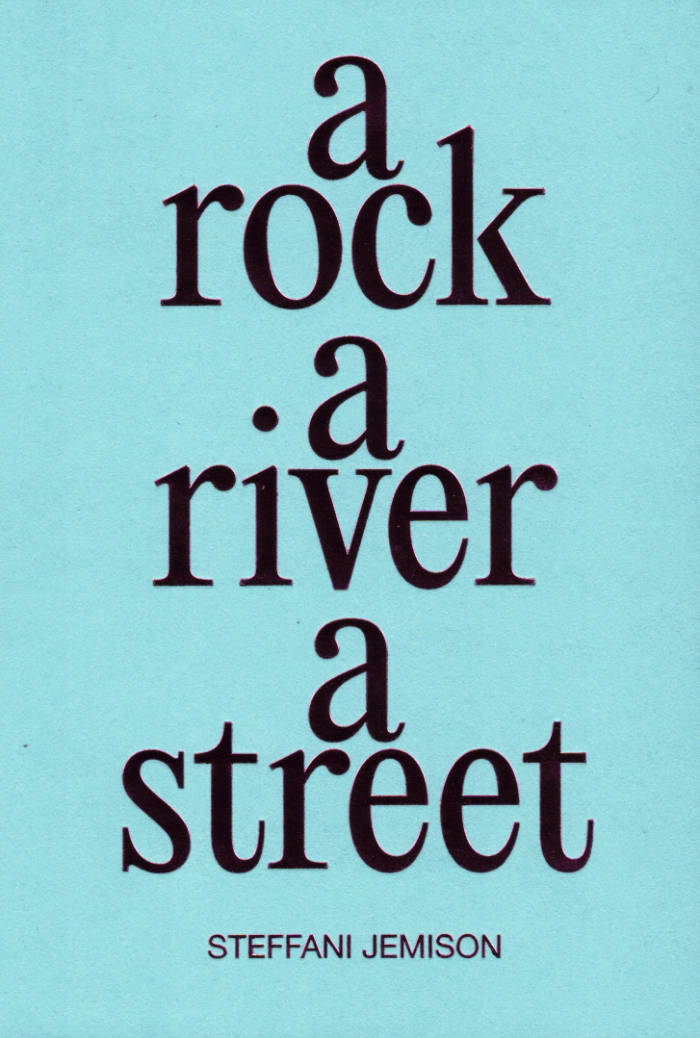
A Rock, a River, a Street
An experimental novella about the bounds of the self and the many forms of embodied expression.
Where does your body end and the world begin? How do you locate the limit between your self and others? A Rock, A River, A Street follows a young, Black woman who lives at the hazy border between Brooklyn and Queens in the not so distant present. As she rides the subway, walks around her neighborhood, visits the doctor, watches movies, attends dance class and tries to heal her body, we are brought into her conflicted relationship with language, as she recalls formative experiences from her childhood and absorbs the world around her. Acutely conscious of the soft, responsive nature of her physical self, and pushed and pulled by forces she cannot control, the narrator is vulnerable, terrifyingly open. Everything and everyone leaves an impression. Brooklyn-based artist Steffani Jemison (born 1981) moves deftly across narrative genres and styles in this novella, as she interrogates the boundedness of the self, the possibilities of plurality and the limits of performance.

University of California Press
Dictee (Second Edition, Reissue, Restored)
Dictee is the best-known work of the multidisciplinary Korean American artist Theresa Hak Kyung Cha. This restored edition features the original cover and high-quality reproductions of the interior layout as Cha intended them. Produced in partnership with the Berkeley Art Museum and Pacific Film Archive, this version of Dictee faithfully renders the book as an art object in its authentic form.
A formative text of modern Asian American literature, Dictee is a dynamic autobiography that tells the story of several women: the Korean revolutionary Yu Guan Soon, Joan of Arc, Demeter and Persephone, Cha's mother Hyung Soon Huo (a Korean born in Manchuria to first-generation Korean exiles),and Cha herself. Cha's work manifests in nine parts structured around the Greek Muses. Deploying a variety of texts, documents, images, and forms of address and inquiry, Cha links these women's stories to explore the trauma of dislocation and the fragmentation of memory it causes. The result is an enduringly powerful, beautiful, unparalleled work.

Sonic Meditations
Pauline Oliveros (1932-2016) Pauline Oliveros' life as a composer, performer and humanitarian was about opening her own and others' sensibilities to the universe and facets of sounds. Her career spanned fifty years of boundary dissolving music making. In the '50s she was part of a circle of iconoclastic composers, artists, poets gathered together in San Francisco. In the 1960's she influenced American music profoundly through her inclusive work with improvisation, meditation, electronic music, myth and ritual.
She founded 'Deep Listening(R), ' which came from her childhood fascination with sounds and from her works in concert music with composition, improvisation and electro-acoustics. She described Deep Listening as a way of listening in every possible way to everything possible to hear no matter what you are doing. Such intense listening includes the sounds of daily life, of nature, of one's own thoughts as well as musical sounds. 'Deep Listening is my life practice, ' Oliveros explained, simply. Oliveros founded Deep Listening Institute, formerly Pauline Oliveros Foundation, now the Center For Deep Listening at Rensselaer, NY. Her creative work is currently disseminated through Pauline Oliveros Publications and the Ministry of Maåt, Inc